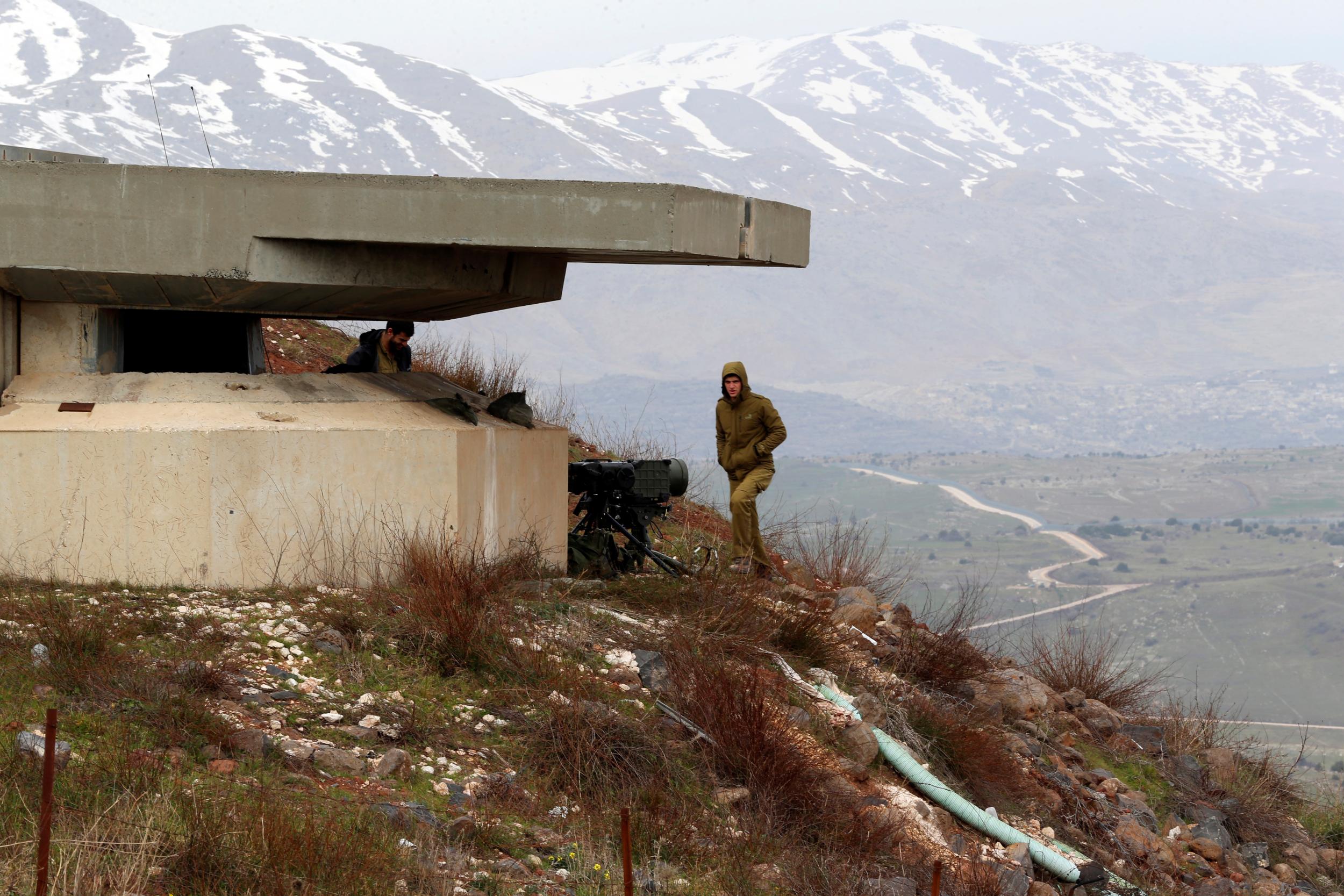Israel vows to continue military campaign in Syria despite warnings another incident could lead to 'regional conflict'
Tensions between the two nations at highest levels since dawn of Syrian civil war after downing of Israeli warplane

Israeli Prime Minister Benjamin Netanyahu has vowed that Israel will continue its operations across the border in Syria after an F-16 fighter jet was shot down.
The Israeli warplane was hit by Syrian anti-aircraft fire on its return from a bombing raid on Iranian targets in the early hours of Saturday, launched after Israeli military say an Iranian drone penetrated its airspace. Its two crew members survived with non-life-threatening injuries.
In response, Israel launched a second ferocious raid, believed to be its most aggressive in years, which it said hit 12 Iranian and Syrian military sites.
Syrian state media did not immediately disclose any casualties or damage but the UK-based monitor Syrian Observatory for Human Rights said that at least six soldiers were killed.
“Yesterday we landed hard blows on the forces of Iran and Syria. We made unequivocally clear to everyone that our modus operandi has not changed one bit,” Mr Netanyahu said during his weekly cabinet meeting on Sunday.
“We will continue to do whatever is necessary to protect our sovereignty and our security.”
Syria’s war is reaching its seventh anniversary – but the weekend of violence and heightened rhetoric from its many international players show that rather than slowing down, it is becoming more complicated than ever.
Inside Syria's obliterated ‘capital of the revolution’
Show all 10Though formally neutral on Syria’s civil war, Israel is believed to have carried out more than 100 strikes to prevent weaponry shipments to Hezbollah, which, along with troops belonging to Shia militias from Iran and Iraq, fights alongside Syrian President Bashar al-Assad’s troops in the multi-sided conflict.
The Lebanese militant group and its backers in Tehran do not recognise the Jewish state and have sworn its destruction.
As the Syrian conflict has evolved, so too has Iran’s political influence over the Assad government – a major worry for Israeli officials, who accuse Tehran of trying to set up new missile bases in the country.
The downing of the Israeli aircraft has been hailed as a symbolic triumph by forces loyal to the Syrian government.
Hezbollah called the incident the “start of a new strategic phrase” which would aim to limit Israel’s air superiority in the region.
Both Russia – which supports the Syrian government – and the US, Israel’s closest ally, have urged restraint following the weekend’s violence.
The Eurasia Group, a New York-based political risk consultancy, said in a commentary that “in order to reinforce deterrence, Israeli leaders will probably assess they need to show Iran, Hezbollah and Syria they will continue to strike targets despite the risk”.
“[But] in a fog of war environment, another incident can easily drag the relevant parties toward a regional conflict.”
Subscribe to Independent Premium to bookmark this article
Want to bookmark your favourite articles and stories to read or reference later? Start your Independent Premium subscription today.

Join our commenting forum
Join thought-provoking conversations, follow other Independent readers and see their replies